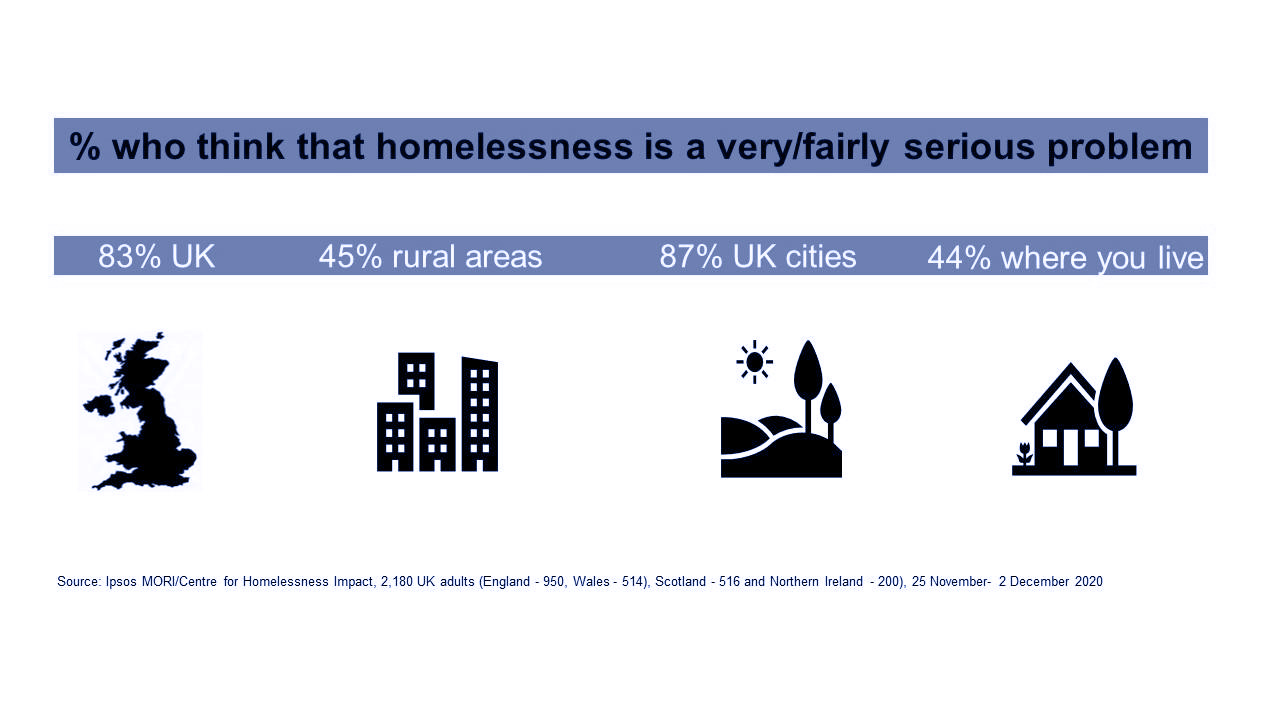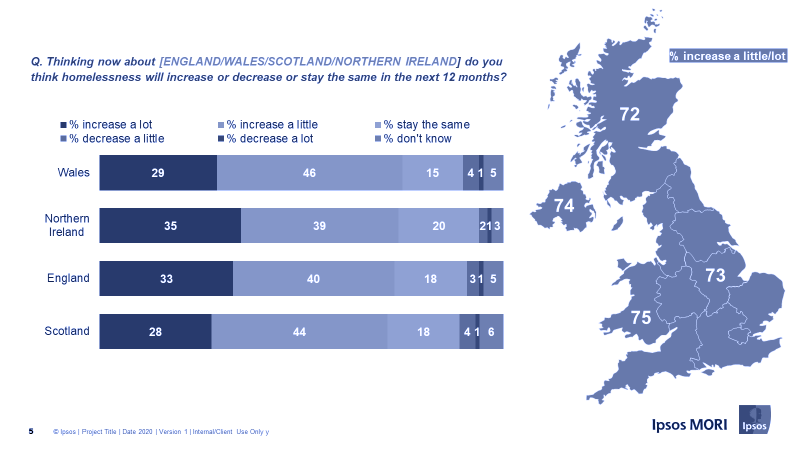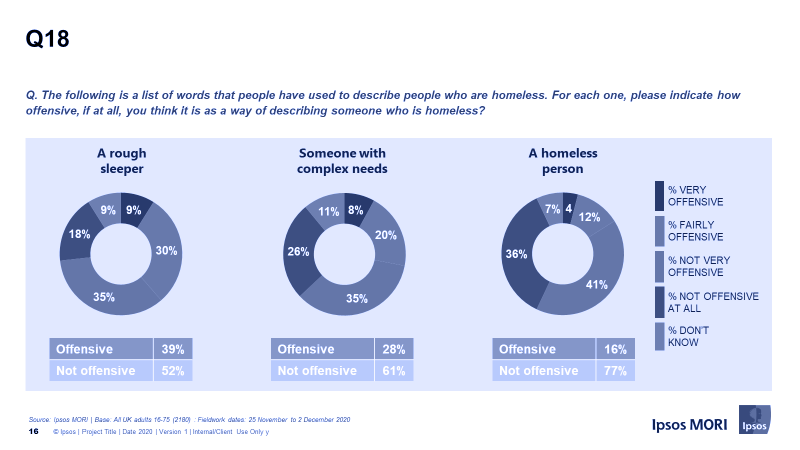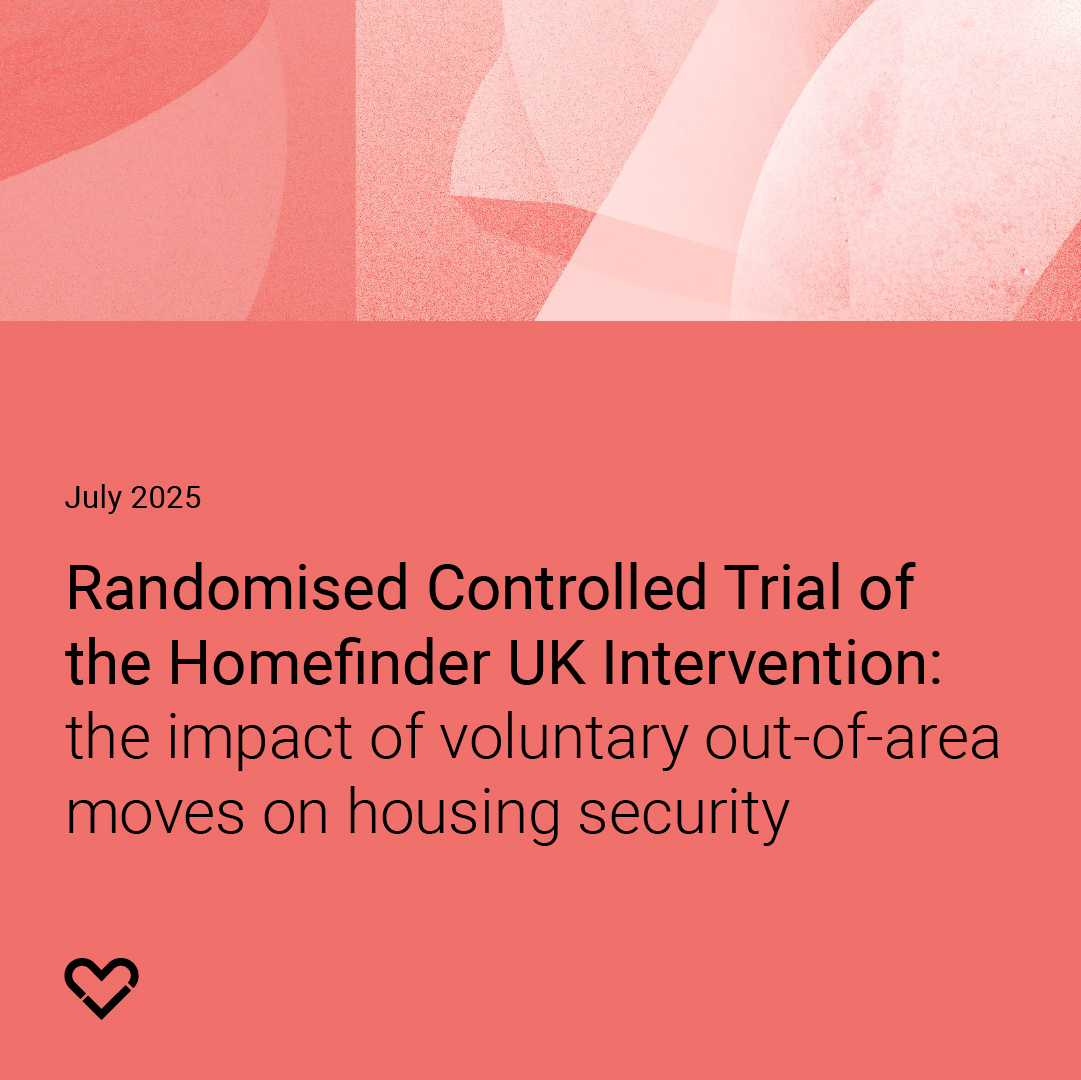Evidence and framing: public perceptions and homelessness
Outline of the Study
How does the public feel about homelessness? This study aims to understand public attitudes in the UK toward homelessness, tests the impact of presenting information in different ways on public perceptions, and encourages support for evidence-based solutions and homelessness as a policy priority.
The study was conducted in partnership between the Centre for Homelessness Impact and Ipsos MORI in late 2020 and involved a representative sample of 2,180 UK adults aged 16 - 75.
The research included two experiments: one tested how different ’frames’ or ways of telling stories about homelessness affected public opinions, the other examined the impact of using person-first language on support for housing policies.
Findings in brief
- Public concern is high: 86% of people surveyed consider homelessness in the UK is a serious problem, with 71% believing we don't pay enough attention to it as a society. However, a lower proportion of people (44%) consider homelessness is a significant issue where they live
- Concern about homelessness varies significantly across English regions - from 34% in the North East to 65% in London. Age groups show differing patterns of concern, with 64% of people aged 55 - 75 recognising social impacts of homelessness, compared to 48% of people aged 16 - 34
- 26% of respondents had experience of homelessness personally, or through family and friends. This figure was higher within 16 - 34 year old respondents and people renting from a private or social landlord
- Homelessness is associated with men, younger people, immigrants and people not in work. The public estimate of UK adults experiencing homelessness (11%) is significantly higher than the official homelessness figure of around 0.5%
- By a three to one margin (52% - 17%) people believe homelessness has structural causes: rather than resulting from individuals' bad choices. 71% of respondents believe the UK needs to build more social housing
- 57% of respondents want decisions based on evidence of what works, with a 6-to-1 ratio of people preferring r evidence over public opinion in policy-making around homelessness
- Overall, 74% of respondents expected homelessness to increase in the next 12 months, with only 4% expecting it to decrease
- 73% of people surveyed supported a legal right to shelter, 70% backed providing long-term rather than temporary solutions.
- A lower, though still a majority of people (61%) backed investing in homelessness prevention, rather than services for people who are already homeless
- Stigma persists around substance use: people estimate 51% of those experiencing homelessness have alcohol or drug dependency, compared to official figures of 4% and 6% respectively
- Language matters: support for providing housing increased by 5% when this was described as for 'people experiencing homelessness and living on the streets’ rather than ’rough sleepers’
- The most impactful communication combines an individual story, structural causes, and evidence-based solutions: this increased support for evidence-based decisions by 2% and prioritising homelessness policy by 5%.
Recommendations in brief
- Develop public awareness campaigns to address misconceptions around homelessness, using accurate statistics about the scale of UK homelessness
- Replace terms such as ’rough sleeper’ with ’people experiencing homelessness and living on the streets’ in policy communications and media
- Emphasise research and data, structural issues and systemic solutions
- Tell complete stories, combine individual experiences of homelessness with information about structural causes and evidence-based solutions
- Provide accurate information about rates of addiction among people experiencing homelessness, to challenge stereotypes
- Highlight homelessness prevention approaches to address the knowledge gap around this issue
- Develop tailored messaging approaches for young people.









.jpg)

